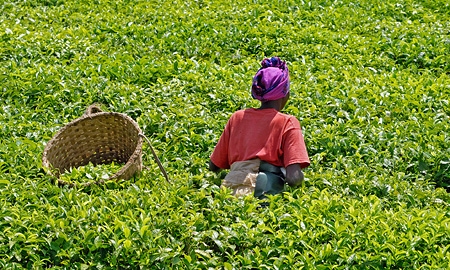Given Tanzania’s 44 million hectares of fertile arable land, it should come as no surprise that the country’s economic mainstay is agriculture. Coffee, tea, cashews, sisal, cloves and flowers are Tanzania’s main cash crops and account for the vast majority of export earnings (in 2009, the agricultural sector accounted for over 25% of GDP).
However, despite high volumes of production, though, poor roads, unreliable cash flow to farmers and poor pricing have meant that in recent years large amounts of produce never make it to market.
While Tanzania’s government has raised its budget allocation to 7% for the sector, firms from around the world agreed at this year’s World Economic Forum in Davos to chip in on projects to develop agriculture and lift more people out of poverty.
In the meantime, President Kikwete continues to lead his strategy of Kilimo Kwanza, or Agriculture First, that he launched in 2009. Aimed at catalyzing an agricultural revolution, the strategy is increasing production and productivity by implementing modern practices, technology and inputs among the country’s small-scale farmers, who make up the vast majority of the sector. Increased mechanization in many cases must be coupled with training, technical assistance, and of course, maintenance.
The U.S. is doing its part to help Tanzanian farmers through the Millennium Challenge Corporation, by funding decent roads leading into areas with agricultural potential. Other U.S. initiatives are helping improve access to credit, food processing capacity and productivity.

0 COMMENTS